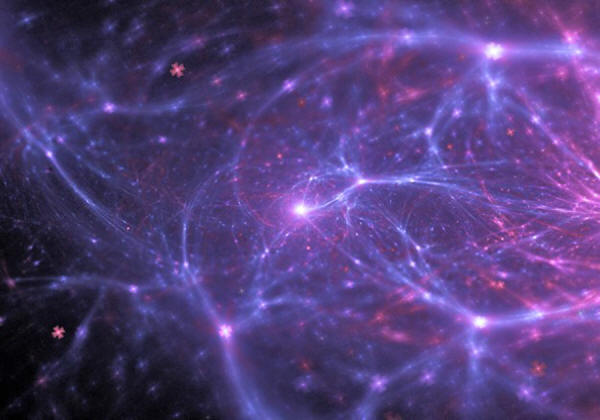|
by Corlett Novis
It has existed in one form or another across the centuries and in many different cultural and religious settings.
The ancient philosopher
Plato believed in what he called the "World-Soul", some
Hindus believed that the universe was a living illusion from a
powerful god and many neopagans believe that the earth has a
conscious spirit they call "Gaia".
Even christian thought evokes the idea of a pervasive "holy spirit".
Whether you are religious
or not, chances are at least one of these four arguments will make
you think twice about how you view the world around you.
One particular difficulty scientists have with consciousness is that it's impossible to get to it from first principles or, to put it another way, it's just not conducive to the reductive process of modern science.
There's nothing about the fundamental parts of the brain (be they neurons or atoms depending on the level of analysis) which, when added together, ought to generate the phenomenal experience of consciousness.
So instead of working from the ground up, neurologist Giulio Tononi proposed a top-down approach.
Tononi proposed Integrated Information Theory (IIT) which says that we can classify consciousness in terms of the common factors shared by all the things we know have consciousness.
Out of those, Tononi points out that they all share certain properties, for example, they collect information and they integrate it. In this way, Tononi's theory proposes a definition of consciousness as the integration of information.
Using this theory, any
complex system can be assigned a number that tells you how
integrated that system is. That number then gives you an
information-theoretical measure of consciousness. Any system
assigned a number greater than 0 has consciousness.
Obviously, this definition includes animals and humans with brains, so far so good, but it also includes machines as well-meaning, at least in theory, things like the internet itself could be conscious.
Stranger still, there is a much larger system we know about which collects and integrates information:
At any given time
countless amounts of "data" are being integrated all around the
universe from atomic collisions to complex, large-scale chemical
reactions all of which would require tremendously powerful
supercomputers to replicate.
The American philosopher William Lycan once made this statement while proposing how consciousness may emerge:
In this case, Lycan
regards "monitoring" as a basic component of consciousness. There
are many ways of framing the quantum-panpsychist argument, one of
them works of this "monitor" definition.
The polarization of one photon has an effect on the other, no matter how far apart, meaning that, in a very real sense, each photon is "monitoring" the other.
It follows then that the
"little bit of consciousness" described by Lycan may, in fact, exist
at the quantum level where we find monitoring occurring on a very
small scale everywhere in the universe.
What this means is that complex systems do not exhibit traits which cannot be reduced to their most fundamental components.
In other words, nothing comes of nothing and consciousness must be found not only in entire systems but in their most basic components as well:
This theory posits consciousness as a universal property of matter and, as a result, must mean consciousness is present in the entire material universe.
This is compelling for many reasons, not least of all because it isn't necessarily unprecedented in the history of science. In this case, we would be regarding consciousness as a property of matter and many material properties, like magnetism, are also universal.
Like magnetism, it may be
the case that some materials have greater or lesser conscious
properties in the same way that some elements have greater or lesser
magnetic properties.
Many theorists, including English Mathematician and Philosopher William Kingdon Clifford, have argued that evolution is a process which creates complicated systems out of simpler ones, but which does not generate "entirely novel" properties such as consciousness.
Naturally, this means that the simple components of biological systems must contain the same properties as we find in the entire system itself:
It may be helpful to think about this argument by taking a quick trip backward through our own hereditary timeline.
This is unlikely given that our ancestors also had intricate brains and nervous systems.
What about at the emergence of vertebrates? This also seems unlikely given the exceptional intelligence of many mollusks like squid and octopi.
In fact, even single cell
organisms carry out their own input-output processes while storing,
processing and integrating data which, as indicated by Integrated
Information Theory, could very well be equivalent to a form of
consciousness.
***
So, is the universe conscious? At this stage, it is still 'unclear'...
Whether science will live
up to the test and prove the nature of consciousness once and for
all remains to be seen, in the meantime, it's worth considering all
the strange possibilities that wait in store for future research and
study.
|


